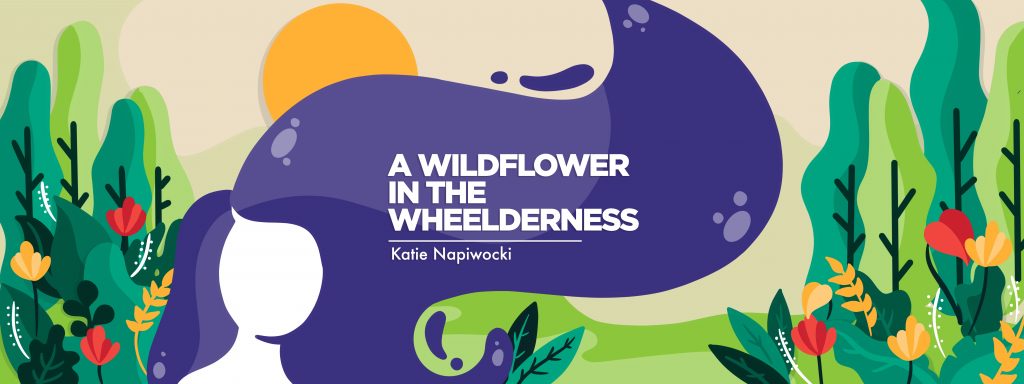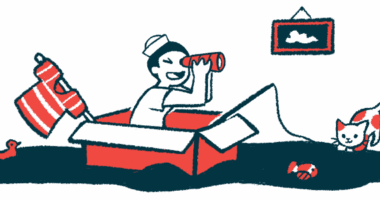Finding My Voice Within the Disability Community


I don’t prefer the phrase “disabled person.” It isn’t a go-to accessory item regularly pulled from my colorful closet of self-descriptors.
Before we go any further, let me assure you: If you describe yourself in this way, I’m wholly accepting of you and your perspective. I welcome your thoughts; I validate your feelings. When it comes to coping with our chronic conditions, there are no bad or wrong emotions. Expressing emotions helps us to process them in a healthy way.
I don’t take issue with the phrase itself. In fact, I do identify with it in many ways. I swiftly check the “disabled” box on medical paperwork. When asked if I’m disabled, I won’t hesitate to answer, “Yep, I am.” I go about my day using a disabled sticker for disabled parking spaces.
The word “disabled” is not a bad word. It’s a good word, a precise word, and a necessary word within our society. Like a bridge of profound magnitude, it holds an invaluable place for growth, connection, and changing landscape. I hold our society responsible for heightened inclusion and accessibility expansion, and distinct terminology is a vital catalyst of social policy change and positive community impact. What matters most is the heart behind the change.
But when I’m speaking or writing about myself — when we’re getting to know each other — my identity as a person with a disability will billow like rainbow smoke from the chimney of my persona.
When I ponder the word disabled and its definition, I envision a battle in which one opponent suddenly finds themself disarmed and caught off-guard in a position of disadvantage. Perhaps they are wounded, crouched down on one knee, shield and sword out of reach.
Vulnerability is a roommate that lives with me daily. Strong relationship dynamics can bloom out of vulnerability. But I don’t need or want to be intimate with it all of the time. Labeling myself as disabled first has never resonated within me or made me feel empowered. It tends to make me see my disability as a looming shadow over my ability to be capable, bright, talented, and beautiful. My life has been beautiful, and SMA is intertwined with my life.
My physical limitations are plentiful, but other aspects of my being are healthy. My spirit is armored. My self-awareness is robust. My heart speaks frequently. My mind is wildly pensive.
When I tell myself I am a person, above all, who wears many different hats, engages in many interests, plays many roles within the film of my life, and happens to have SMA, my sense of vulnerability shrivels.
Social media has opened an entire realm of opinions. It can be a wellspring of encouragement but can also create a space of pressure and expectation. Sometimes this pressure dwells within our own disease community. It might surface as pressure to promote a viewpoint that is viral but not necessarily one we connect with on a personal level.
We all need support. Coping with a disease is a lot like thumbing through radio stations. If we don’t connect with a tune, it won’t resonate within us. If coping is the radio, then advocacy is the satellite, pulling rhythms and melodies of encouragement through the airwaves.
Within our respective chronic disease communities (and larger disability community as a whole), we can make great progress by welcoming all perspectives. We need many voices writing many songs. We need to consider multiple routes and pathways. We have enough heavy issues to juggle as it is; to feel like one doesn’t fit in within their disease community is even harder.
Anytime we put ourselves out there with a form of art — everything from writing to advocacy (yes, advocacy is a human development topic; it’s also an art that requires true grit and vibrant talent) — there is risk involved. We risk others misconstruing the message we intend to send. We risk feeling like royal flub-ups if someone feels discounted or undervalued by the creative forces we dreamed up from a fertile ground of good intentions.
When I started writing this column, I knew not everyone would relate to my story or my views on life with a disability. But my writing is my heartbeat. I hoped if I wrote these words from my heart, some readers would be moved. I hoped that somewhere, someone would be nudged into the warmth of a bright horizon.
Through reflection, I’ve decided it’s acceptable to feel differently about my disability on different days of the week. On a bustling Thursday, I might feel the need to be courageous and outspoken. On a Sunday, I might be comfortable being an ordinary human — a gloriously ordinary human.
***
Note: SMA News Today is strictly a news and information website about the disease. It does not provide medical advice, diagnosis, or treatment. This content is not intended to be a substitute for professional medical advice, diagnosis, or treatment. Always seek the advice of your physician or other qualified health provider with any questions you may have regarding a medical condition. Never disregard professional medical advice or delay in seeking it because of something you have read on this website. The opinions expressed in this column are not those of SMA News Today, or its parent company, BioNews, and are intended to spark discussion about issues pertaining to spinal muscular atrophy.
The post Finding My Voice Within the Disability Community appeared first on SMA News Today.



